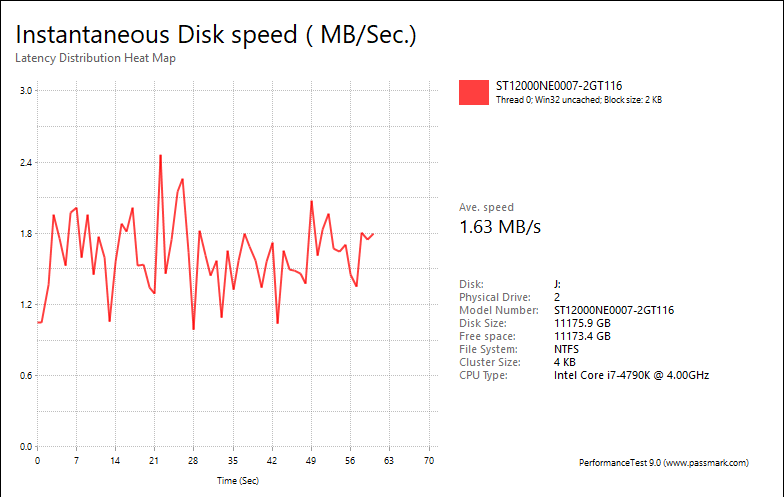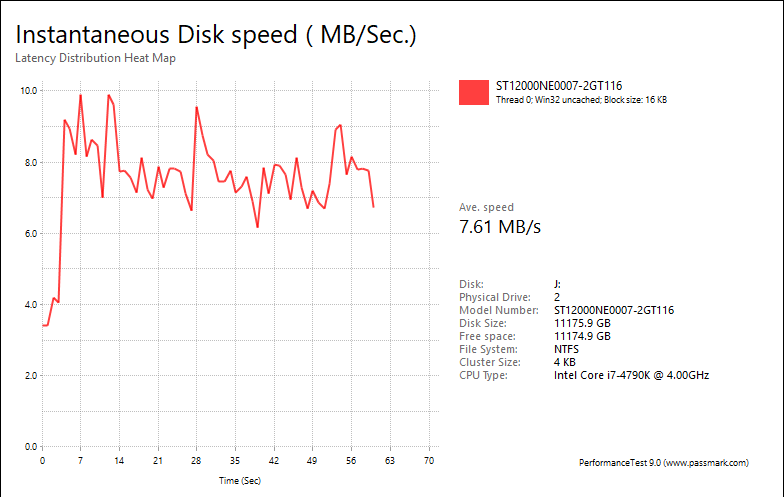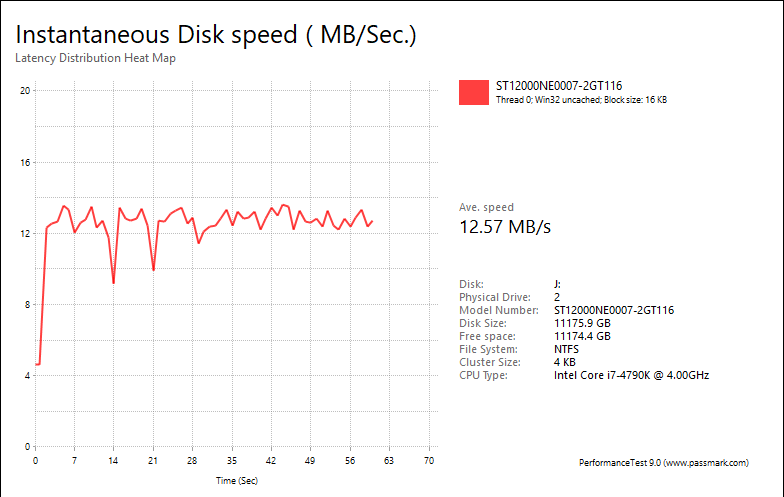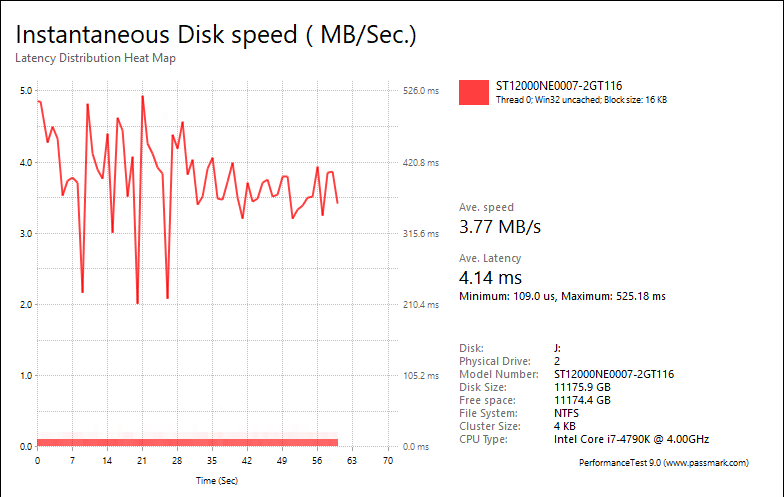Page 8 - Benchmark: PassMark PerformanceTest 9.0
About PassMark PerformanceTest 9.0
This Advanced Disk Test, which is part of PerformanceTest, measures the data transfer speed when reading or writing data to one or more disks. The speed that data can be transferred between memory and a hard disk drive is one of a system's most important performance aspects. There are quite a few factors which have a bearing on this speed and the Advanced Disk Drive Test allows the user to vary most of these factors and compare the results.
The test supports any drive that can be mounted under Windows. Including IDE drives, SCSI, RAID, USB key drives, SATA, networked shared drives and external drives.
Users have the ability to test multiple drives at the same time using multiple threads, and specify:
- The size of the test file used. Larger files mean that the system cache has less of an effect on the test types, which use caching (see below).
- The size of the data block used for each read or write request. Larger blocks mean less requests and can lead to an improvement in performance.
- The choice of four access methods - C/C++ API, Win32 API cached / uncached and raw disk access.
- Sequential or random access (seeking plus reading and writing)
- Synchronous and Asynchronous access
- The split between reading and writing
The results of all completed tests may be graphed using our custom graphing components.
From: Developer's Page




PassMark PerformanceTest 9.0's Advanced Disk Test, unlike HD Tune Pro 4.60, generates some awesome graphs right out of the box. It also provides valuable insight in simulating real world performance applications. To make things clear to you, the first graph simulates a database server, followed by a file server, web server, and workstation. Drives with high sequential read and write performance will do well in PassMark PerformanceTest 9.0. However, it also requires high IOPS capabilities for the best score, and as such, results for hard disk drives will prove to be very relevant.
Overall, the Seagate IronWolf Pro ST12000NE0007's performance was very good compared against other hard drives. With results of 1.63MB/s, 7.61MB/s, 12.57MB/s, 3.77MB/s, these are among the best numbers I have seen here at APH Networks for a mechanical hard drive. The BarraCuda Pro 12TB's stats were the highest recorded on this website for a mechanical hard drive at 1.72MB/s, 8.18MB/s, 13.44MB/s, 3.96MB/s, in the same order. The previous fastest drive in this test was the Seagate NAS HDD ST8000VN0002 8TB at 1.25MB/s, 9.28MB/s, 11.32MB/s, 3.59MB/s, respectively. Meanwhile, Seagate's own Enterprise Capacity 3.5 HDD V.5 ST8000NM0055 8TB came in at 1.21MB/s, 7.03MB/s, 9.39MB/s, 3.84MB/s, respectively. On the Western Digital side of things, the Red Pro WD6001FFWX posted numbers of 1.24MB/s, 8.91MB/s, 9.88MB/s, and 3.36MB/s, in that order. The IronWolf non-Pro 12TB was closer to the BarraCuda Pro 12TB than the IronWolf Pro we are testing today in performance, which, again, was surprising to me, considering I expected the Pro to deliver higher scores than the vanilla version.
Page Index
1. Introduction, Features, Specifications
2. A Closer Look, Test System
3. Benchmark: AIDA64 Disk Benchmark
4. Benchmark: ATTO Disk Benchmark
5. Benchmark: Crystal Disk Mark 3.0
6. Benchmark: HD Tach 3.0.1.0
7. Benchmark: HD Tune Pro 4.60
8. Benchmark: PassMark PerformanceTest 9.0
9. Benchmark: PCMark 7
10. NAS Performance, Power Consumption
11. Conclusion





